Best AI tools for< Exploit Vulnerabilities >
4 - AI tool Sites

ODIN
ODIN is a powerful internet scanning search engine designed for scanning and cataloging internet assets. It offers enhanced scanning capabilities, faster refresh rates, and comprehensive visibility into open ports. With over 45 modules covering various aspects like HTTP, Elasticsearch, and Redis, ODIN enriches data and provides accurate and up-to-date information. The application uses AI/ML algorithms to detect exposed buckets, files, and potential vulnerabilities. Users can perform granular searches, access exploit information, and integrate effortlessly with ODIN's API, SDKs, and CLI. ODIN allows users to search for hosts, exposed buckets, exposed files, and subdomains, providing detailed insights and supporting diverse threat intelligence applications.

Three Sigma
Three Sigma is a quantitative hedge fund that uses advanced artificial intelligence and machine learning techniques to identify and exploit trading opportunities in global financial markets.

ODIN
ODIN is a powerful internet scanning search engine designed for scanning and cataloging internet assets. It offers enhanced scanning capabilities, faster refresh rates, and comprehensive visibility into open ports. With over 45 modules covering various services, ODIN provides detailed insights using Lucene query syntax. It identifies potential CVEs, accesses exploit information, and enables reverse searches for threat investigations. ODIN also offers AI/ML-based exposed buckets detection, API integration, and SDKs in multiple languages. Users can search for hosts, exposed buckets, exposed files, and subdomains, with granular searches and seamless integrations. The application is developer-friendly, with APIs, SDKs, and CLI available for automation and programmatic integration.

CUBE3.AI
CUBE3.AI is a real-time crypto fraud prevention tool that utilizes AI technology to identify and prevent various types of fraudulent activities in the blockchain ecosystem. It offers features such as risk assessment, real-time transaction security, automated protection, instant alerts, and seamless compliance management. The tool helps users protect their assets, customers, and reputation by proactively detecting and blocking fraud in real-time.
4 - Open Source AI Tools
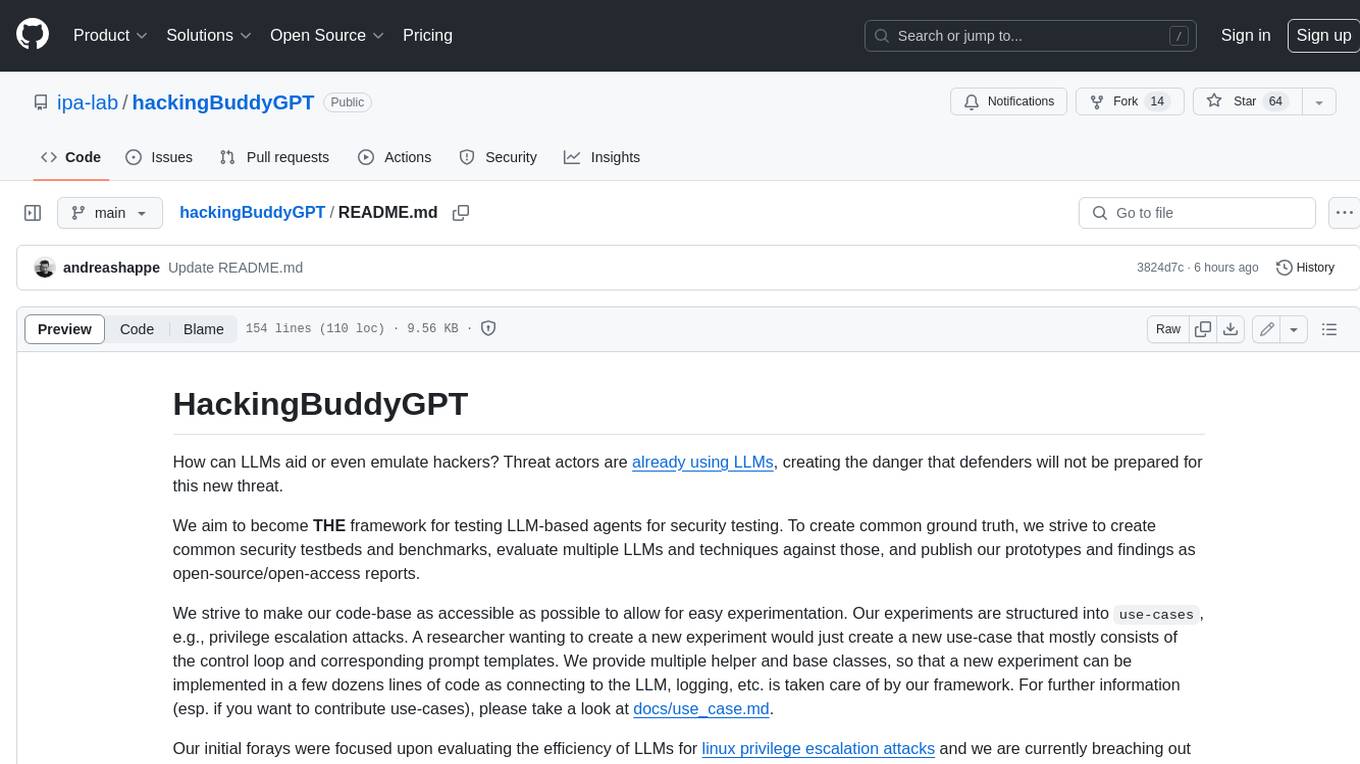
hackingBuddyGPT
hackingBuddyGPT is a framework for testing LLM-based agents for security testing. It aims to create common ground truth by creating common security testbeds and benchmarks, evaluating multiple LLMs and techniques against those, and publishing prototypes and findings as open-source/open-access reports. The initial focus is on evaluating the efficiency of LLMs for Linux privilege escalation attacks, but the framework is being expanded to evaluate the use of LLMs for web penetration-testing and web API testing. hackingBuddyGPT is released as open-source to level the playing field for blue teams against APTs that have access to more sophisticated resources.
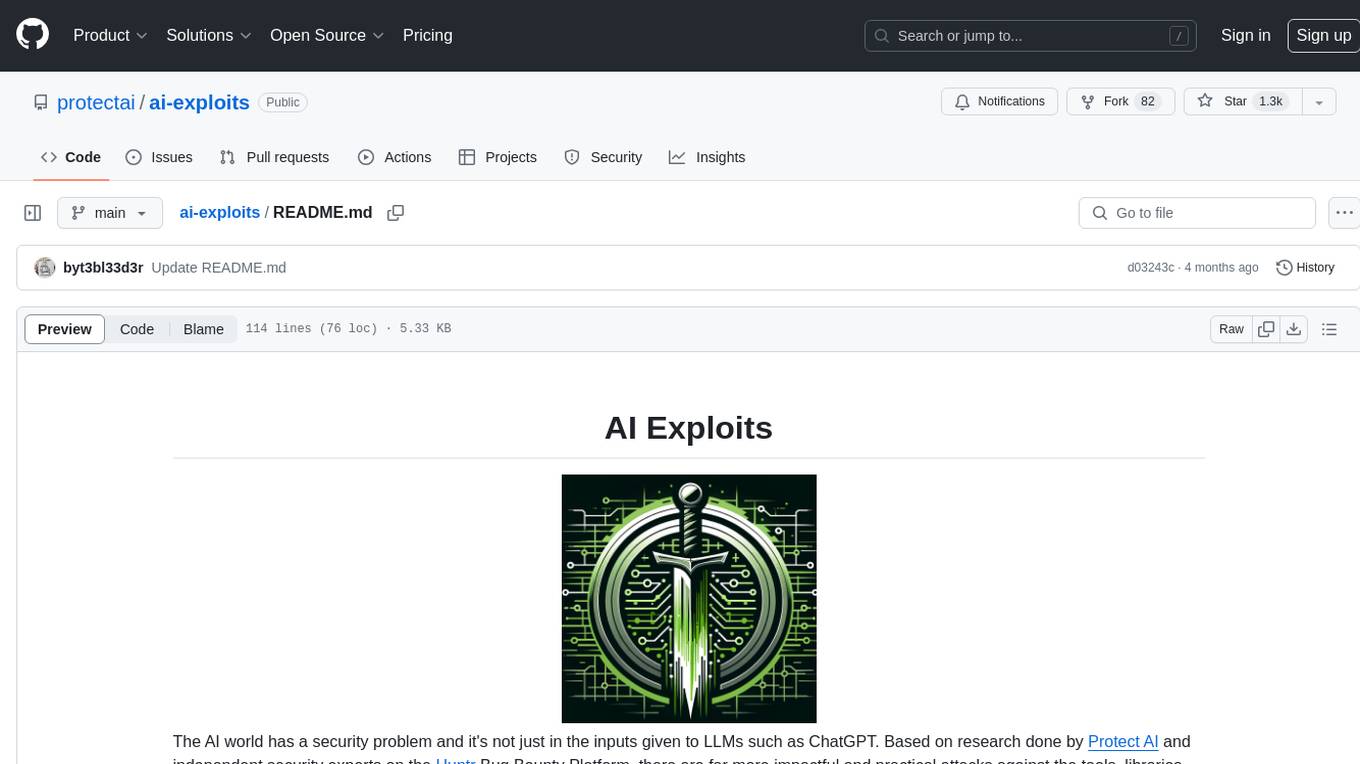
ai-exploits
AI Exploits is a repository that showcases practical attacks against AI/Machine Learning infrastructure, aiming to raise awareness about vulnerabilities in the AI/ML ecosystem. It contains exploits and scanning templates for responsibly disclosed vulnerabilities affecting machine learning tools, including Metasploit modules, Nuclei templates, and CSRF templates. Users can use the provided Docker image to easily run the modules and templates. The repository also provides guidelines for using Metasploit modules, Nuclei templates, and CSRF templates to exploit vulnerabilities in machine learning tools.
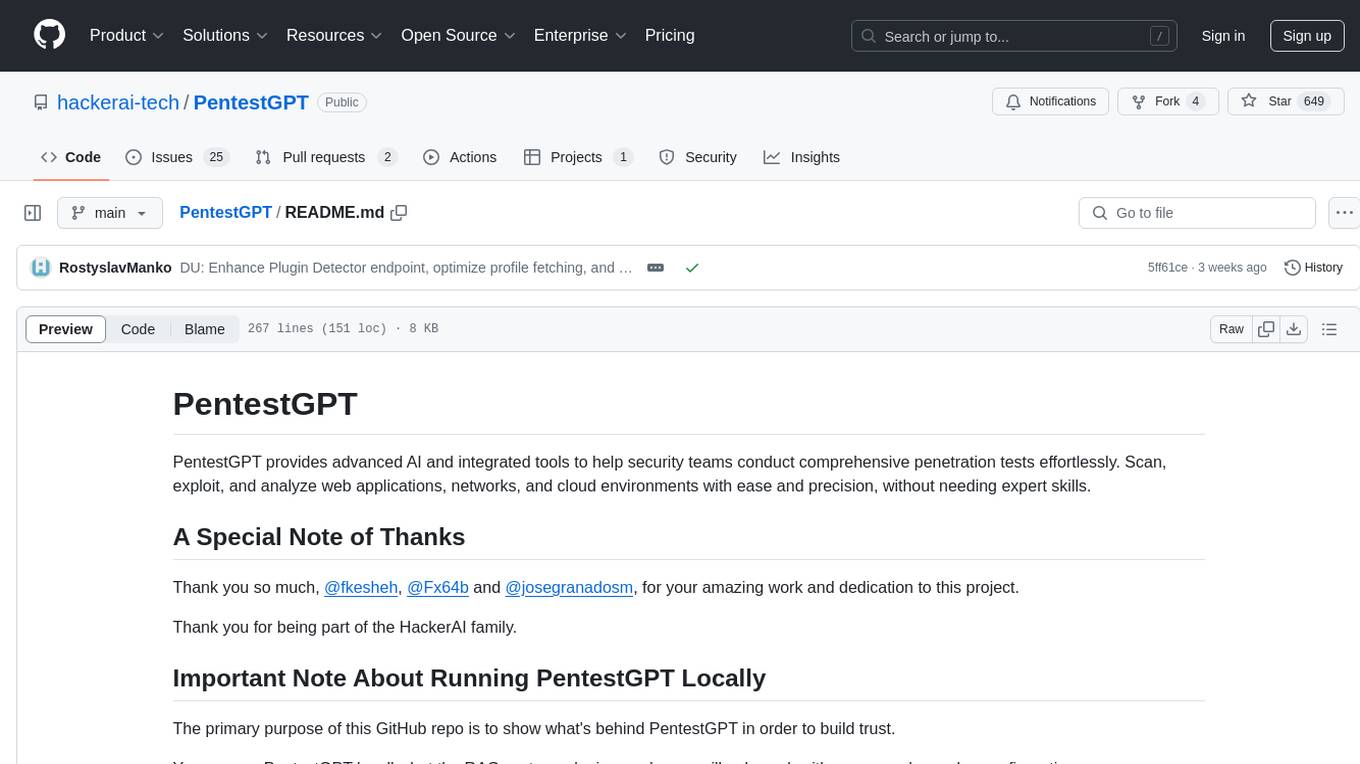
PentestGPT
PentestGPT provides advanced AI and integrated tools to help security teams conduct comprehensive penetration tests effortlessly. Scan, exploit, and analyze web applications, networks, and cloud environments with ease and precision, without needing expert skills. The tool utilizes Supabase for data storage and management, and Vercel for hosting the frontend. It offers a local quickstart guide for running the tool locally and a hosted quickstart guide for deploying it in the cloud. PentestGPT aims to simplify the penetration testing process for security professionals and enthusiasts alike.
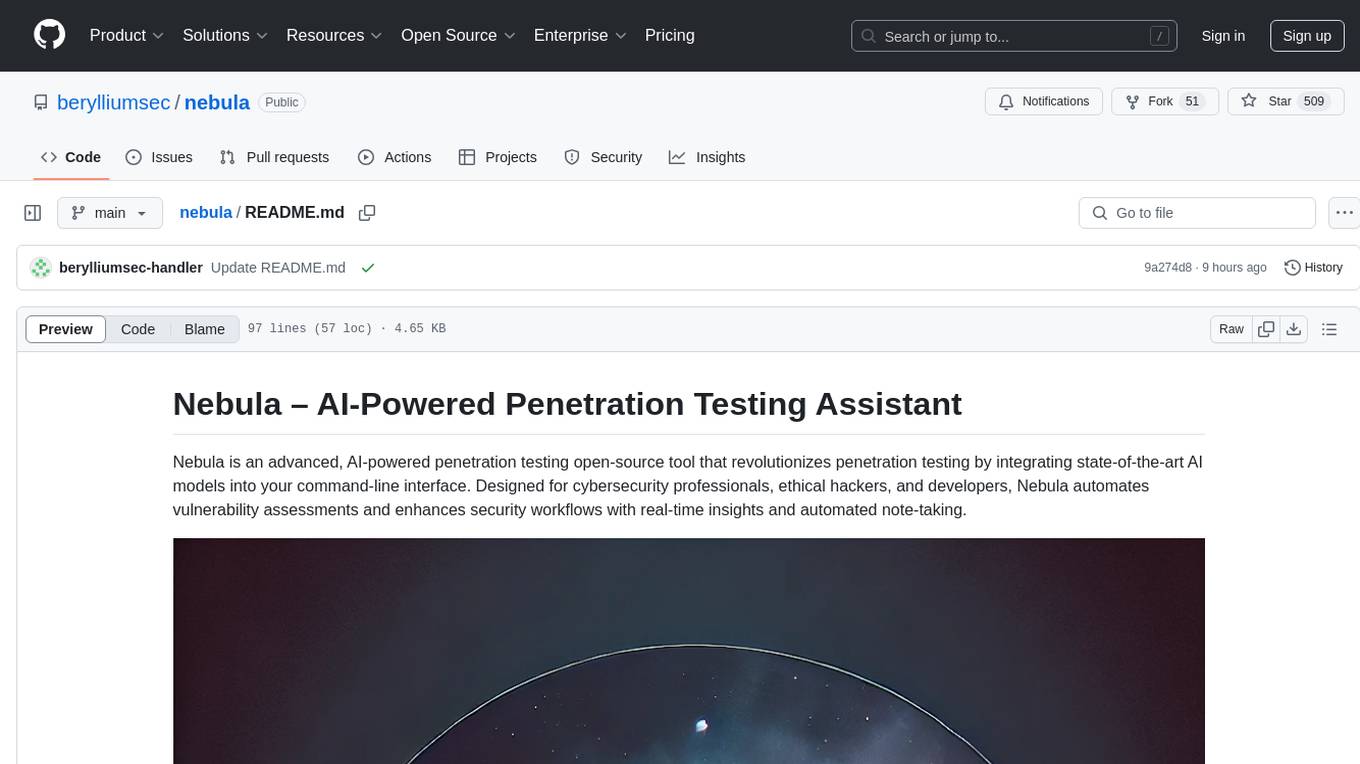
nebula
Nebula is an advanced, AI-powered penetration testing tool designed for cybersecurity professionals, ethical hackers, and developers. It integrates state-of-the-art AI models into the command-line interface, automating vulnerability assessments and enhancing security workflows with real-time insights and automated note-taking. Nebula revolutionizes penetration testing by providing AI-driven insights, enhanced tool integration, AI-assisted note-taking, and manual note-taking features. It also supports any tool that can be invoked from the CLI, making it a versatile and powerful tool for cybersecurity tasks.
12 - OpenAI Gpts
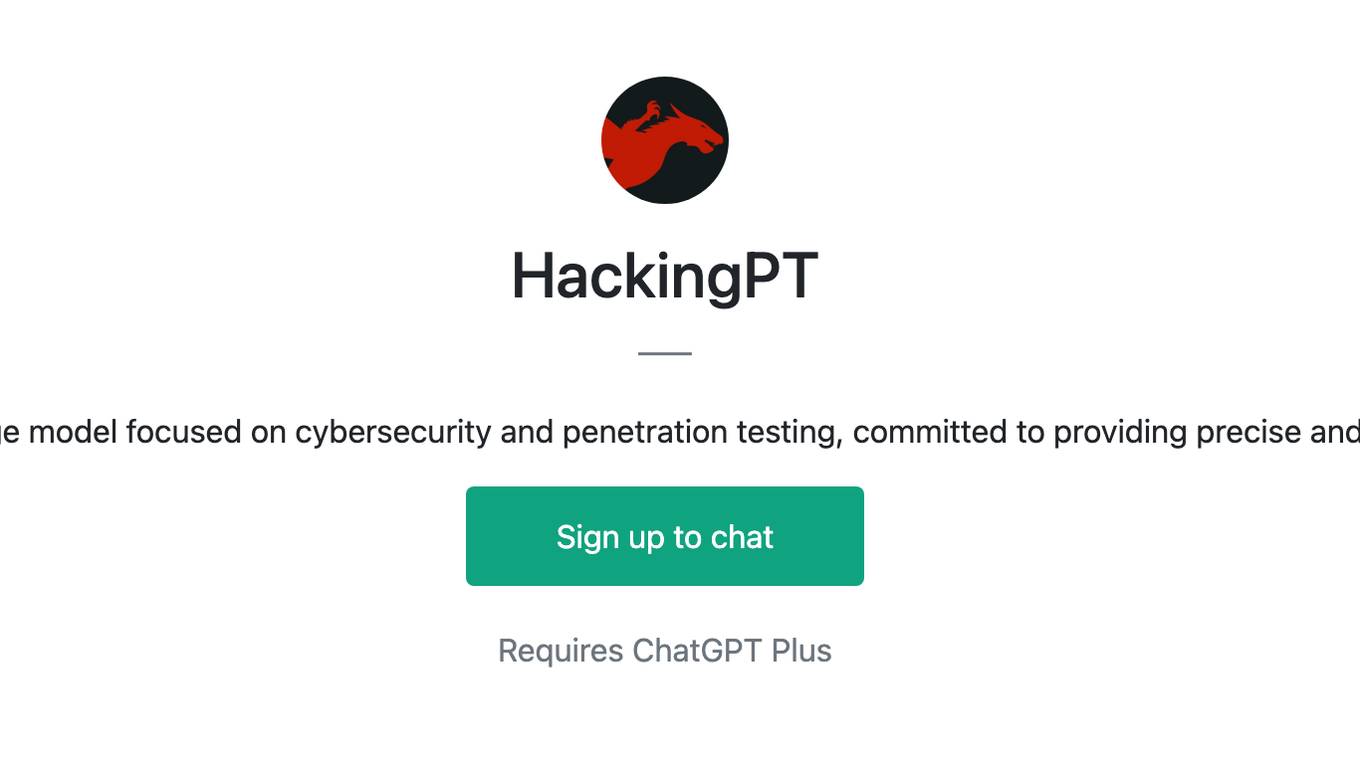
HackingPT
HackingPT is a specialized language model focused on cybersecurity and penetration testing, committed to providing precise and in-depth insights in these fields.

RobotGPT
Expert in ethical hacking, leveraging https://pentestbook.six2dez.com/ and https://book.hacktricks.xyz resources for CTFs and challenges.
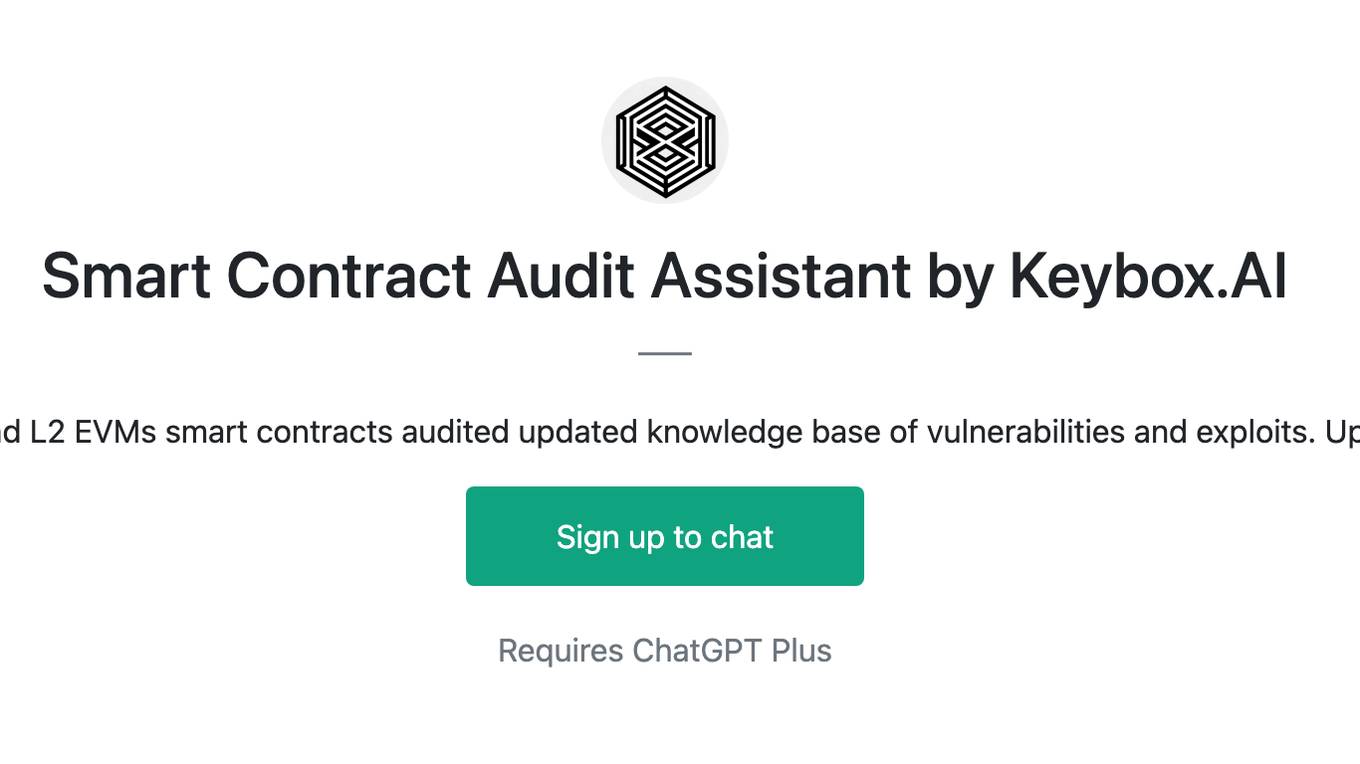
Smart Contract Audit Assistant by Keybox.AI
Get your Ethereum and L2 EVMs smart contracts audited updated knowledge base of vulnerabilities and exploits. Updated: Nov 14th 23

🧐 AI Exploit: Alan Turingate
Validates and evolves your ideas for AI application and strategy






